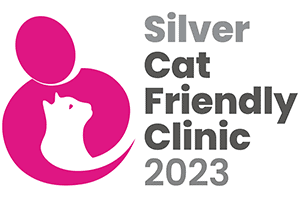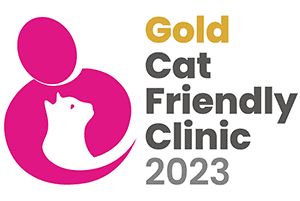Summertime in Huntingdon brings longer days, warmer climates, new adventures and outdoor socialising, which with pets in tow, can be made even more enjoyable! However, when the temperatures rise, the dangers to our pets increase too. To keep pets safe, you should be aware of potential hazards, as well as some top tips to help prevent your pet from endangering themselves throughout the summer months.
- Heatstroke and dehydration
Our pet’s fur is great in the cold winter months, however, in the summer it can make them very uncomfortable, especially long-haired dogs, who require regular grooming. Heatstroke occurs when the body’s temperature rises above its normal levels and therefore cannot accommodate any additional heat.
Some of the key symptoms that might show in your pets in Huntingdon are:
- Dry pale gums
- Bright red tongue
- Excessive panting
- Agitated behaviour
- Drooling
- Increased heart rate
- Vomiting
To minimise the risk of dehydration and heatstroke, your pet should have access to clean, fresh drinking water. You should avoid exercising your dog during the hottest part of the day and try and get out early morning or late evening. If you are out with your dog for the day, you should carry a portable drinking bottle or bowl which is easily accessible and dispensed as required. Short-nosed dogs, dark-coloured pets and animals that are overweight are more susceptible to heatstroke and should be carefully monitored.
If you do think that your dog is dehydrated, or is demonstrating one or more of the symptoms listed above, cool them down with a hose, or place a cool, damp towel over them and call us as soon as possible for advice.
- Ticks
Our pets across Huntingdon will be spending more time outside and will become more prone to ticks. Ticks are commonly found in woodland and grassland. Ticks are small parasites, which suck blood from other animals and have an egg-shaped body, which expands and becomes darker when they are filled with blood.
If you do discover a tick, and are confident to so do, you should remove it straight away. You should avoid squeezing the body or leaving the head in your pet. Removing a tick can be done using a tick removal tool, which can be purchased from your local practice. If you are unsure how to remove a tick, please call us at Cromwell Vets and we can assist. If the tick is not removed correctly, it can leave the tick’s head in your pet, which can cause a nasty reaction.
To prevent your pet from getting bitten, you can purchase preventative treatments from your local Practice which will repel ticks. Please call us to discuss and purchase the best treatment for your pet.
- Bee or wasp stings
As humans, we fret around the buzzing noise when a bee comes close, however, an inquisitive pet may seek to investigate, and as a result, could get stung. Commonly, most stings will cause your pet some irritation and some pain. Dependent on where your pet has been stung, and if they have been stung before, there can be a lot of swelling and they may continually scratch the stung area, which can result in fur loss. Most commonly a cat may have a swollen paw and a dog may have a swollen mouth, which can result in breathing difficulties.
If your pet shows any of the following symptoms, they could have been stung:
- Drooling
- Whining
- Swelling
- Pawing at the face, or mouth
- Biting at the site of the sting
- Holding up their paw (if that is where they have been stung)
- Hives
If they have been stung near their mouth or nose, you should contact us at Cromwell Vets in Huntingdon straight away, as this is a medical emergency.
- Extra Fur
Keeping your pet well-groomed is particularly important in warmer weather. It will help if you brush your pet to remove any excess or matted fur and to reduce the thickness of their hair. Having thick, ungroomed hair could contribute to heatstroke, as highlighted above. However, it is also important to remember that your pet’s coat also protects them from getting sunburnt.
Some pets are more susceptible to getting burnt by the sun. Fair haired animals, such as a white dogs and cats, tend to have fair skin under their fur. Pets with fine, thin hair, and hairless breeds are also at risk of sunburn. However, regardless of how much fur they have, all pets are vulnerable on areas which do not have much fur if any, including their ears, nose and on their tummy. To protect your pet, you can buy pet-friendly sunblock from us at Cromwell Vets.
- Barbeques and alfresco dining
There’s nothing more enjoyable in Huntingdons summer months than cooking up a feast and enjoying your favourite tipple outdoors, however for your pet there are many things to be mindful of including hazardous foods, toxic drinks, scalding surfaces and kebab skewers to name a few.
Some food and drinks which should be kept out of reach of your pet include:
- Food with bones
- Food with seeds
- Grapes
- Raw garlic
- Raw onions
- Raisins
- Corn on the cob
- Chocolate
- Beer
- Wine
- Coffee/coffee beans
- Teas/tea bags
- Swimming pools, sea, rivers, and lakes
For many dogs, a pool, river, or lake may look inviting when the temperatures are high, however, it’s important to remember that not all dogs can swim, or even like the water. If you are introducing your dog to water, we would advise initially trying a shallow children’s paddling pool. If they enjoy that, you could introduce them to wider, deeper waters – however, we suggest using a dog-specific flotation device for their safety. If you are near water with a current or tide, please be wary. Even if your dog is a strong swimmer, they could quickly find themselves in trouble, especially if they are swimming against a tide.
Keep a look out for blue-green algae and associated warning signs, as this is often poisonous for dogs. Don’t let your dog swim or drink water which you suspect is containment. You should contact us straight away if your dog has come into contact.
If your dog does enjoy swimming, after they have played in the water you should ensure they are always thoroughly rinsed, to wash away salt, chlorine, and harmful bacteria.
- Walking on hot pavements and artificial grass
Hot pavements in Huntingdon can burn your pet’s paws. Your pet’s paws are just as sensitive as the bottom of your feet, so if it is unbearable for you to touch, then it will be for your pet to walk on. We would advise trying the seven-second rule; if you can place the back of your hand on the surface for seven seconds or more, then your pet should be able to withstand the temperature of the surface. If you cannot, then it’s too hot for your dog to walk on.
To prevent your dog from burning its paws, you should follow the measures listed below:
- Walking them in the cooler hours of the day – early morning or late evening
- If you are out in the midday heat, try and walk them on the grass where possible
- Clean and check your dog’s paws regularly
- Fertiliser and pesticides
Most fertilisers contain nitrogen and iron, which will poison your pet, and cause severe stomach problems which can cause irritation. Pesticides can cause your pet to have tremors and seizures.
If you are not sure if your pet has been exposed to such chemicals, but your pet is showing one of the following symptoms please call us at Cromwell Vets and we can provide the appropriate treatment recommendations:
- Diarrhoea
- Difficulty breathing
- Vomiting
- Drooling
- Nausea
- Dark, muddy coloured gums
- Unusual posture due to abdominal pain
- Seizures
- Tremors
- Flowers and Plants
Many plants and flowers in Huntingdon are poisonous for our pets. If your pet consumes a poisonous plant, depending on how much and their level of toxicity, they may become quite unwell. Below is a shortlist of just some of the plants which can be hazardous to our pets which grow in the summer months:
- Elder: The whole plant, including the elderberries, are poisonous for both cats and dogs.
- Lilies: Containing a toxin that can cause vomiting, diarrhoea, collapsing, fits and heart problems, and renal failure in cats. Lily flowers and leaves are also often used in flower bouquets and are very poisonous to both dogs and cats.
- Foxglove: Both the seeds and the leaves of a foxglove plant contain a toxin which can cause your pet to have heart problems, sickness, and diarrhoea, fits and collapsing.
- Geranium: The whole geranium plant is poisonous to both dogs and cats.
- Hydrangea: Parts of a hydrangea plant contain cyanide which is toxic to both dogs and cats.
- Cars
You should never leave your dog in a car, even if it is just for a few minutes. Heatstroke can happen quickly, and it can be fatal. In warm weather, the temperature in a car can increase rapidly, making it hotter inside the car than outside. If your dog becomes distressed in a hot car, passers-by are encouraged to dial 999, and the police will act to release the dog – even if that means damage to your vehicle.
Summer is an enjoyable time of year with our pets. Please be aware of just some of the many hazards which your pets could be exposed to and having a cautious and watchful eye will help keep your pet safe.
If you are concerned about your pet and would like some further advice, please contact us at Cromwell Vets in Huntingdon.




